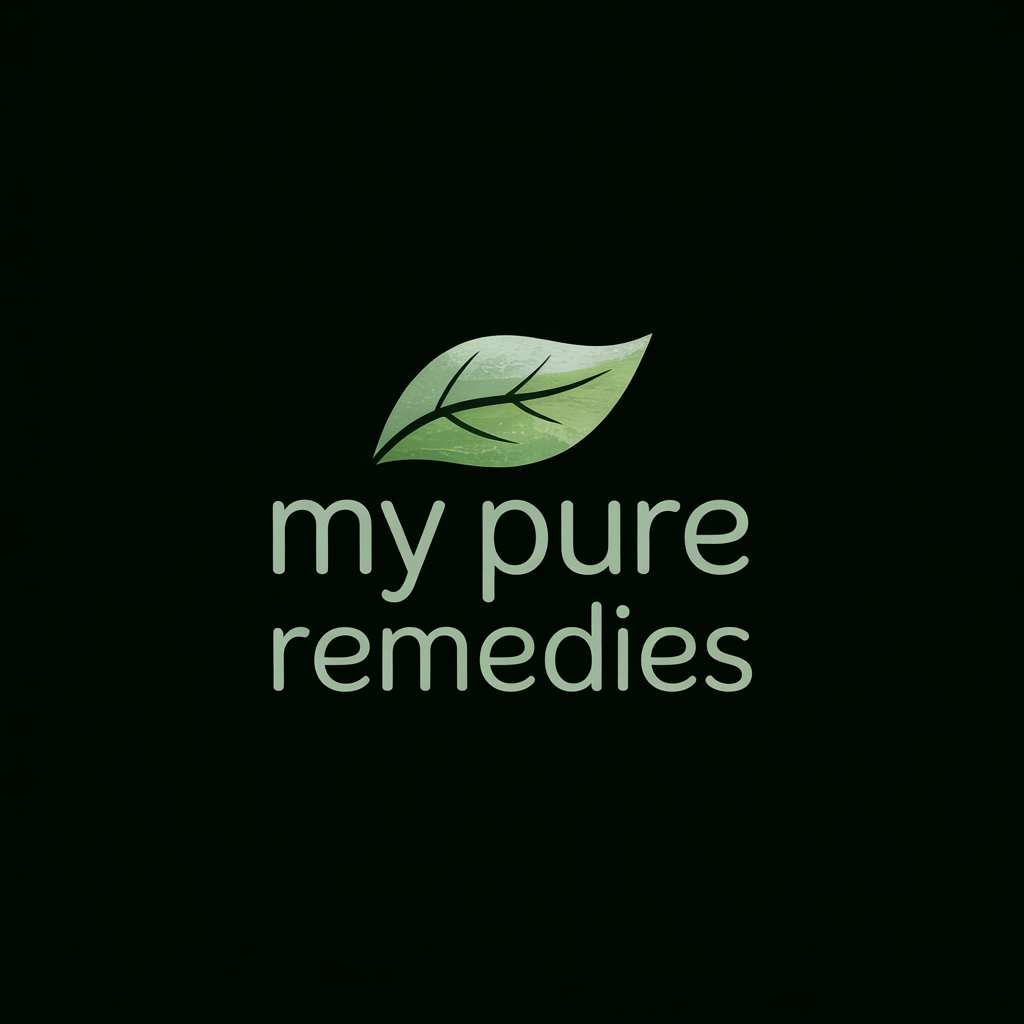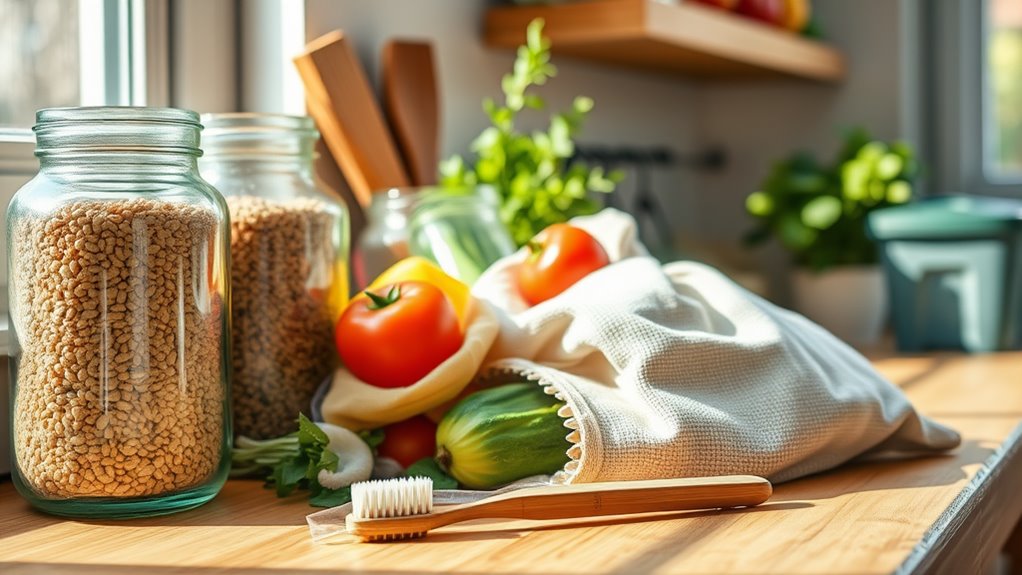Eco-Swaps That Save Money and the Environment
Making eco-swaps can save you money while being kind to the planet. Start using reusable shopping bags instead of single-use plastic, and switch to beeswax wraps for food storage instead of plastic wrap. Opt for glass containers over disposable storage to keep your food fresh and odor-free. Cloth napkins save you cash compared to paper ones. You can also create your own cleaning products with simple ingredients, reducing chemical exposure. Keep exploring for more money-saving and eco-friendly tips!
Key Takeaways
- Choosing reusable shopping bags cuts plastic waste and saves money over time with their durability and capacity.
- Beeswax wraps provide eco-friendly food storage, replacing plastic wrap while being washable and reusable for long-term savings.
- Glass containers offer a sturdy, odor-free option for food storage, avoiding disposable products and facilitating cost savings through reuse.
- Switching to cloth napkins significantly reduces waste and expenses, providing a durable and customizable alternative to paper napkins.
- DIY cleaning products use simple ingredients, saving money and minimizing exposure to harmful chemicals while promoting a healthier environment.
Reusable Shopping Bags vs. Single-Use Plastic Bags
When you choose reusable shopping bags over single-use plastic bags, you’re not just making a smart financial decision, but also taking a stand for the environment.
Each time you reach for that sturdy bag, you’re embracing a simple eco swap that can significantly cut down on plastic waste. Those flimsy plastic bags often end up in landfills or, worse, our oceans, harming wildlife.
With your reusable bags, you’re investing in a lifestyle that prioritizes sustainability and health. Plus, they can hold more, making your shopping trips easier and often saving you money in the long run. Additionally, using reusable bags helps to reduce overall plastic consumption, contributing to a healthier planet for future generations.
Beeswax Wraps vs. Plastic Wrap
Swapping plastic wrap for beeswax wraps can make a noticeable difference in your kitchen and the planet.
The beauty of beeswax wraps lies in their adaptability; they hug your food snugly, keeping it fresh without the environmental burden of plastic. You’ll love the tactile experience as you mold them around bowls or sandwiches, their gentle warmth helping them stick.
Plus, they’re washable and reusable, making them a smart, cost-effective choice in the long run. By choosing eco-friendly alternatives, you contribute to reducing plastic waste and fostering a more sustainable lifestyle.
Glass Containers vs. Disposable Food Storage
Five clear advantages make glass containers a superior choice over disposable food storage.
First, they’re reusable, helping you save money long-term. You’ll reduce waste, easing your eco-conscious mind.
Second, glass doesn’t absorb odors or stains like plastic, keeping your food fresher and more inviting.
Third, they’ve got a sturdiness that lasts—no more flimsy containers cracking during a hectic meal prep.
Fourth, they’re safe in the oven, microwave, and dishwasher, simplifying your life.
Lastly, glass containers are a breeze to clean, so you can spend more time enjoying meals and less time scrubbing. Additionally, using glass containers for food storage aligns with the principle of eco-friendly living, promoting sustainability while you save money.
Cloth Napkins vs. Paper Napkins
Choosing cloth napkins instead of paper napkins can significantly reduce both your expenses and your environmental footprint. Imagine using soft, reusable napkins that add a touch of warmth to your dining experience. They’re not only eco-friendly but also durable, making them a cost-effective choice over time.
With each wash, you’re saving money and helping to decrease the vast amount of single-use waste that clutters our planet.
Plus, you have the freedom to choose colors and patterns that reflect your style, bringing joy to your table setting. It’s a small switch that makes a big difference, unfurling care for the environment and your wallet.
DIY Cleaning Products vs. Store-Bought Cleaners
Have you ever considered how much you could save by making your own cleaning products?
DIY cleaners use simple, natural ingredients like vinegar, baking soda, and essential oils that can tackle dirt just as effectively as store-bought options. You’ll not only save money but also reduce your exposure to harsh chemicals.
Plus, crafting your own solutions feels rewarding and personal.
Think about the satisfaction you’ll get knowing exactly what’s in your cleaner. You can customize scents and strengths to suit your preferences.
While store-bought cleaners might be convenient, they often come with plastic packaging and chemicals you can’t pronounce.
With DIY products, you’re taking a step towards a healthier home and a greener planet—one spray bottle at a time. Additionally, homemade cleaners can outperform commercial chemical products, providing effective results without the negative side effects.

